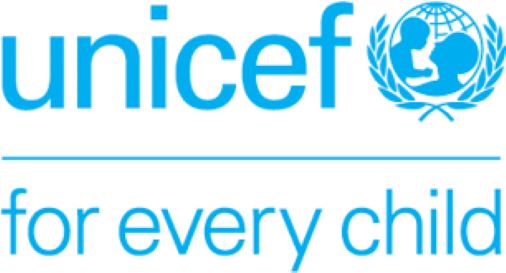…Collaborates with NCDC, NHPCDA, affected states
By Hassan Zaggi
Following the outbreak and subsequent spread of Diphtheria which has affected children in 27 states in Nigeria, the United Nations Children’s Fund (UNICEF) has intensified efforts to halt the disease from spreading further.
The outbreak has affected mainly Kano, Yobe, Katsina, Lagos, FCT, Sokoto, and Zamfara, which account for 98.0% of the suspected cases. Most confirmed cases, approximately 71.5%, have occurred among children aged 2 – 14 years.
UNICEF has, therefore, urged all parents and guardians to ensure their children receive routine immunizations to protect them from preventable diseases like diphtheria.
In a statement, UNICEF disclosed that it is currently amplifying its efforts to counter what it described as a growing outbreak of diphtheria in Nigeria.
It expressed concern that as of July 2023, 3,850 suspected cases were reported with 1,387 confirmed as diphtheria and that the disease has tragically claimed 122 lives, with a case fatality rate (CFR) of 8.7%.
“It’s heartbreaking to note that only 22 % of the confirmed cases received their routine childhood immunization vaccinations,” said Ms Cristian Munduate, UNICEF Representative in Nigeria. “Most of these affected children, especially those who unfortunately passed away, had not received a single dose of the vaccine. The need to reach the unreached has never been more critical.”
According to UNICEF, in response to the outbreak, it is closely collaborating with the Nigeria Centre for Disease Control (NCDC), the National Primary Health Care Development Agency (NPHCDA) and the affected States in providing technical support to plan and operationalize the response.
UNICEF’s commitment, the statement said, extends to several key interventions, including planning, implementing, and funding risk communication and community engagement activities; transporting vaccines and related equipment to the affected states and strengthening routine immunization; training health workers and volunteers for service delivery, risk communication, and community engagement and supervising outbreak response activities.
Other areas include procuring and supplying face masks, hand sanitizers, and antibiotics to treat diphtheria and supplying Laboratory consumables and biosafety cabinets for testing of suspected cases at the NCDC.
The UNICEF Representative in Nigeria, therefore, emphasized the pressing need to reach children who had missed out on their vaccines due to the COVID-19 lockdown. “Many children did not receive their vaccines during the COVID-19 lockdown,” she said. “We now urgently need to catch up. These ‘zero-dose’ children, those who haven’t received a single dose of vaccine, are a primary concern.”
UNICEF, therefore, vowed that it will continue to intensify efforts to address the ongoing outbreak and work alongside the government to achieve a healthier, safer future for every Nigerian child.



